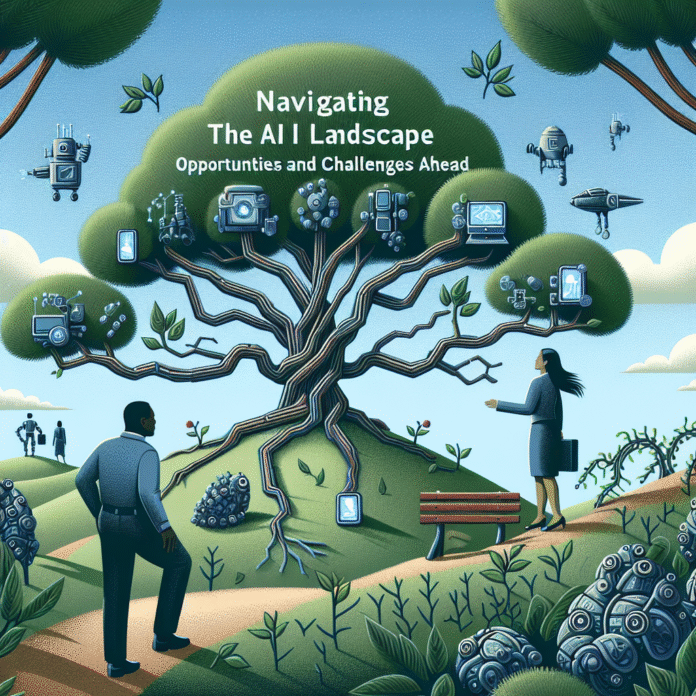As artificial intelligence (AI) continues to evolve at a rapid pace, its influence permeates nearly every sector of society. From healthcare to finance, education to entertainment, AI offers unprecedented opportunities while simultaneously posing significant challenges. Understanding this duality is essential for businesses, policymakers, and society at large as they navigate the AI landscape.
The Opportunities of AI
1. Enhanced Efficiency and Productivity
One of the most immediate benefits of AI is its ability to automate routine tasks. Businesses can leverage AI to streamline operations, leading to enhanced efficiency and productivity. For instance, AI-driven chatbots can handle customer inquiries around the clock, freeing human employees to focus on more complex tasks. In manufacturing, AI can optimize supply chains, predict equipment failures, and reduce downtime.
2. Innovation in Healthcare
AI stands poised to revolutionize healthcare. Advanced algorithms can analyze medical data at light speed, leading to early diagnosis and personalized treatment options. Machine learning models help in predicting disease outbreaks, optimizing patient care, and conducting drug discovery. Such innovations promise to improve health outcomes and reduce costs within the healthcare system.
3. Transforming Education
Education is another sector ripe for transformation. AI tools can provide personalized learning experiences tailored to individual student needs. Adaptive learning platforms assess student performance in real time, adjusting the curriculum to improve learning outcomes. Furthermore, AI can assist educators by automating administrative tasks, allowing them more time to focus on teaching.
4. Independent Decision-Making
AI’s ability to analyze vast datasets allows for data-driven decision-making. Businesses can harness AI analytics to gain insights into market trends, customer preferences, and operational efficiency. This ability to make informed decisions enhances competitiveness and drives innovation.
The Challenges of AI
1. Ethical Considerations
The rapid development of AI brings with it a myriad of ethical concerns. Issues like bias in algorithmic decision-making, data privacy, and accountability are at the forefront. For example, AI systems trained on biased data can perpetuate discrimination in hiring or law enforcement. Addressing these ethical dilemmas requires robust frameworks and transparency in AI development.
2. Job Displacement
While AI creates new opportunities, it also poses a threat to jobs, particularly in sectors that rely heavily on routine tasks. Many fear job displacement as AI systems become capable of performing tasks previously conducted by humans. A balanced approach is necessary, focusing on reskilling the workforce to adapt to new roles that AI technologies will create.
3. Security Risks
AI also introduces new vulnerabilities, particularly in cybersecurity. Sophisticated AI tools can be weaponized to conduct cyberattacks, creating significant risks for organizations and individuals alike. As AI technology becomes more prevalent, developing robust security measures is crucial to mitigate these threats.
4. Regulatory Challenges
The pace of AI innovation often outstrips existing regulatory frameworks. Policymakers face the challenge of crafting legislation that fosters innovation while ensuring safety and public welfare. Striking this balance is essential for fostering trust in AI technologies and preventing misuse.
Future Directions
As we navigate the AI landscape, collaboration between businesses, governments, and civil society is key. This includes:
-
Creating Ethical Guidelines: Establishing ethical standards that guide AI development and deployment will be critical to addressing biases, protecting privacy, and ensuring accountability.
-
Investing in Education and Reskilling: Preparing the workforce for the realities of an AI-driven economy requires investment in education and training programs that equip individuals with skills for future jobs.
-
Encouraging Public-Private Partnerships: Collaboration between the public and private sectors can drive innovation while ensuring that regulations keep pace with technological advancements.
-
Prioritizing Security: As AI systems proliferate, investing in cybersecurity measures to protect data and systems from malicious attacks must be a priority.
Conclusion
Navigating the AI landscape presents an exciting yet complex challenge. The opportunities are profound, offering the potential to transform industries and improve quality of life. However, the associated challenges require careful consideration and proactive measures. By embracing collaboration, ethical guidelines, and continued education, we can shape a future in which AI technologies benefit society as a whole. The journey ahead may be fraught with obstacles, but it is also brimming with promise.






